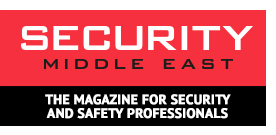
01 Sep Industry Interview with Yacine Benamane, Unilever + Asis Dubai
Yacine Benamane (below), cpp, Mena & Iran senior regional security manager for Unilever based in UAE, and vice chair of Asis dubai chapter spoke with Meshal Aljohani, cpp, psp, pci, security group supervisor at Aramco.
Can you describe your experience in the security industry?
The latest research shows private security workers outnumber public police officers for the majority of the world, except in developing countries where the market for private security services remains nascent and undervalued. I grew up in such a country, lacking standardised security professional regulation, and where aspiring to become a security professional was not the norm. So, i joined the first private security company in 1998 and was fortunate to have my first assignment in an oil & gas company which allowed me to understand the fundamentals of security but also, he&s, the oil sector being strictly regulated. I moved then to different industries, in different countries, exposing me to different customs and traditions, increasing my cultural awareness while enabling creativity and driving innovation in my different roles.
What are the most pressing security challenges in the region?
Declining economies compounded by covid disruption, skyrocketing inflation, volatile energy and food prices and the rapid galvanising effect of social media are increasing popular frustration and leading to the threat of strikes, riots and civil commotion in the region. The impact on companies stretches from supply chain disruption to threats to their people and assets.
Navigating the geopolitics of sanctions and building a successful sanctions compliance programme is another issue requiring a solid screening and management of a third party’s ecosystem and deeper cross-functional cooperation between the risk management and legal functions.
In the longer-term bigger picture, the effects of climate change will continue to exacerbate existing social, economic, and environmental challenges impacting food, water and energy supplies, increased competition over natural resources, loss of livelihoods, climate-related disasters, and forced migration and displacement requiring an all-hazard risk management approach.
Tell us about your experience with ASIS and how it has affected your career…
Very few people will dispute the benefit of joining Asis International and you’ll hear countless success stories from security professionals on how Asis international‘s membership acted as a catalyst to develop their skills base, knowledge and academic qualifications eventually developing fully qualified, smart business security individuals.
At a time when access to industry-leading and educational events was only available in English, Asis changed the perception and narrative, allowing me to be part of a large networking organisation providing a readily accessible library of security, risk management and cyber advice, reference and knowledge, not to mention forging long-term personal friendships with lots of security practitioners around the world. So, I owe Asis the ’rounded’ business security individuals I became today and try as much as I can to give back through the voluntary programme to benefit the upcoming generation of security professionals.
How will the security landscape evolve in the next 10 years?
As we look ahead to a year of continued uncertainty, organisations across the region face a multitude of social, economic and health-related threats. Building resilience ahead of the curve to mitigate risk and subsequently be better prepared to take advantage of opportunities is a fundamental social, economic and business continuity imperative.
To cope with an uncertain environment, companies will need to adopt effective and collaborative approaches involving carefully crafted risk assessments of the convergence of the digital, virtual and physical business environment to uncover cause-and-effect relationships in markets, making the environment less ambiguous and more predictable.

